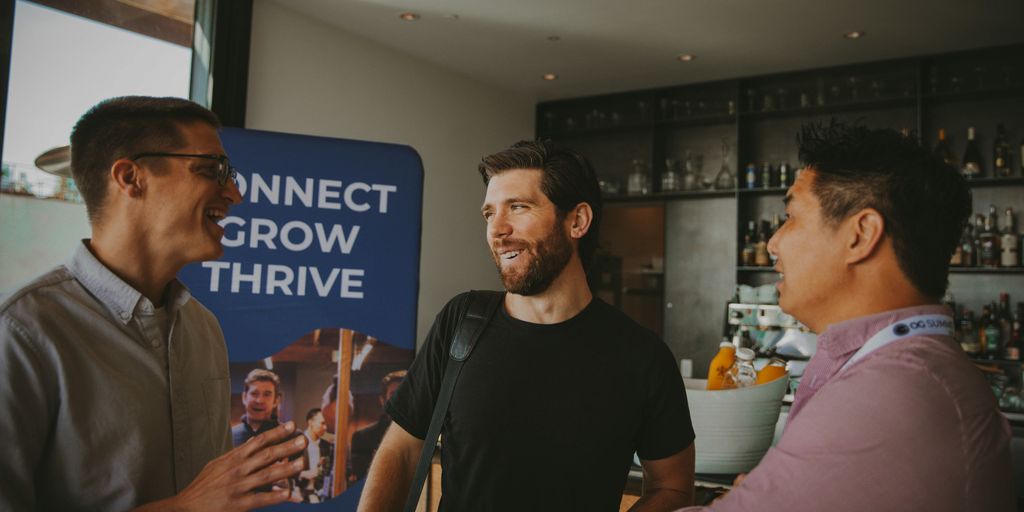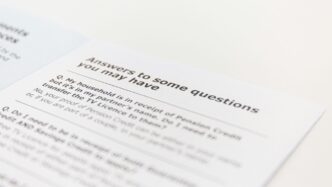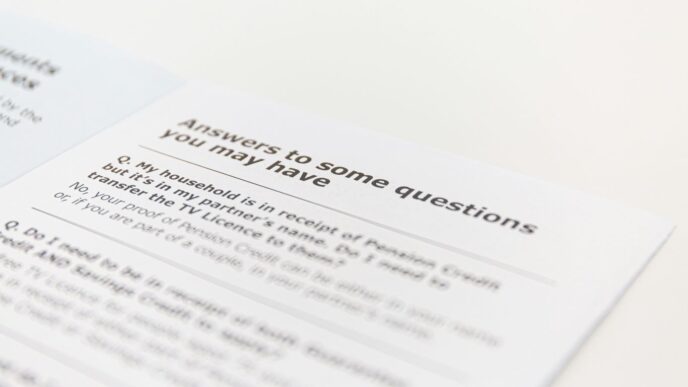Heading to a job fair can feel a bit overwhelming, right? You’re there to make a good impression and hopefully find your next career move. But what do you actually say to the recruiters? It’s not just about handing over your resume; it’s about having a real conversation. Asking the right questions can help you figure out if a job and company are a good fit for you, and it also shows you’re serious and engaged. Think of it as a chance to interview them just as much as they’re interviewing you. We’ve put together some pointers on what questions to ask at job fair events to help you stand out.
Key Takeaways
- Understand the role by asking about the ideal candidate and daily tasks.
- Explore growth by inquiring about advancement and training opportunities.
- Gauge company culture by asking about the team atmosphere and unadvertised perks.
- Clarify the hiring process, including stages and any expected tests.
- Build rapport by asking recruiters about their own experiences and how to follow up.
Understanding the Role and Team Dynamics
When you’re at a job fair, it’s easy to get caught up in just finding out if there are any openings. But to really make the most of your time, you need to dig a little deeper. Understanding the specifics of the role and the team you might join is super important. It’s not just about the tasks; it’s about how you’ll fit in and what the team is aiming for.
What Are You Truly Looking For in an Ideal Candidate?
This question gets right to the heart of what the hiring manager values. A job description can only tell you so much, but asking this can reveal if they’re looking for someone who follows instructions precisely or if they want a go-getter who brings new ideas. It helps you figure out if your own strengths align with what they really need and gives you a heads-up on what skills to highlight later.
On a Typical Day, What Does This Role Entail?
While recruiters might not know every tiny detail, this question can give you a good sense of the daily grind. You can learn about work hours, the general pace, and maybe even get a peek at the projects you’d be working on. It’s a way to gauge the work-life balance and the overall vibe of the job.
What Is This Team’s Biggest Goal in the Next Six Months?
Knowing the team’s immediate objectives can tell you a lot about where the role fits into the bigger picture. Are they trying to launch something new? Improve an existing process? Understanding their short-term aims helps you see how your contributions could make an impact and what kind of challenges you might face.
Exploring Career Growth and Development

Thinking about your future at a company is smart. It’s not just about landing the first job; it’s about finding a place where you can actually build a career. Asking about growth opportunities shows you’re serious about staying and contributing long-term. It tells them you’re not just looking for a quick paycheck, but a place to invest your time and skills. Companies want people who are loyal and adaptable, and showing you’re thinking ahead can really make you stand out.
Here are some questions to get you thinking about your own career path:
- What does career growth look like here? This is a broad question, but it opens the door to understanding if the company promotes from within. You want to know if there are clear paths to move up or even sideways into different roles that might be a better fit as you develop.
- Does the company support professional development? Think about training programs, workshops, or even tuition reimbursement. It’s good to know if they invest in their employees’ learning.
- How does the company help employees learn new skills? This could be through on-the-job training, mentorship programs, or access to online courses. It shows you’re eager to improve and contribute more, not that you expect them to teach you everything from scratch.
Asking these questions helps you see if the company aligns with your long-term goals. It’s a two-way street; you’re evaluating them just as much as they’re evaluating you. You can find out more about making a good impression at a career fair by checking out career fair tips.
Gauging Company Culture and Environment
Beyond the job description, the actual day-to-day vibe of a company is what really makes or breaks your experience. It’s not just about the tasks; it’s about the people you’ll be working with and the general atmosphere. Think about it – you spend a huge chunk of your life at work, so you want it to be a place where you feel comfortable and can actually do your best. Recruiters are there to present the company in a good light, so pay attention to how they answer. Do they seem genuine, or is it a bit too polished? Little things like hesitations or overly rehearsed answers can tell you a lot. It’s about finding a place that fits you, whether you thrive in a super collaborative setting or prefer to work more independently.
Can You Describe the Company Culture?
This is your chance to get a feel for the company’s personality. You could ask something like, "What’s the general atmosphere like here?" or "What kind of person tends to do well at this company?" It’s also good to inquire about how people communicate and handle feedback. For instance, "How do people typically give and receive feedback within the team?" or "What communication tools does the company usually use?" If diversity and inclusion are important to you, don’t shy away from asking about it. You might say, "I saw on your social media that you recently had a [mention a specific event, like a volunteer day or diversity workshop]. Can you tell me more about that initiative?"
What Is the Atmosphere Like Within This Team?
While company culture is broad, the team you’d be joining has its own specific dynamic. You could ask, "What’s the biggest challenge this team is currently trying to tackle?" or "What are the team’s main objectives for the next six months?" Understanding the team’s immediate goals can give you insight into their priorities and how you might contribute. It’s also helpful to know who the team reports to or who reports to them, as this clarifies the structure.
What Are Some Unadvertised Perks or Benefits?
Sometimes the best things about a job aren’t listed in the official benefits package. You might ask, "Are there any team traditions or informal benefits that employees really appreciate?" or "Do people often socialize outside of work, like team lunches or after-hours events?" These kinds of questions can reveal a lot about employee morale and the company’s commitment to work-life balance, beyond the standard offerings.
Inquiring About the Hiring Process

So, you’ve had a good chat with a recruiter and they seem to know their stuff. Now what? It’s time to get down to the nitty-gritty of how they actually bring people on board. Understanding the hiring process can save you a lot of time and guesswork. It helps you know what to expect, how long things might take, and if it even fits with what you’re looking for right now. Plus, it shows you’re serious about the opportunity.
What Does the Hiring Process for This Role Typically Look Like?
This is your chance to get a clear picture of the journey from application to offer. You want to know if it’s a quick turnaround or a more involved process. Asking this shows you’re thinking ahead and want to be prepared.
Can You Tell Me About the Different Stages Involved?
Here, you’re looking for a breakdown of what happens at each step. It’s helpful to know if there’s a phone screen, a series of interviews, or maybe a project to complete. Knowing the stages helps you prepare for each one. For example, you might ask:
- Initial screening call with HR.
- First-round interview with the hiring manager.
- Technical assessment or case study.
- Final interview with a senior leader.
- Reference checks.
Understanding these steps can give you a good idea of the timeline and what skills will be evaluated at each point. It’s also a good time to ask about the general timeframe for each stage, so you have realistic expectations. You can find more tips on asking effective questions at a career fair here.
Are There Any Specific Tests or Assessments Candidates Should Expect?
Some companies use tests to gauge skills or personality fit. Knowing this upfront means you won’t be caught off guard. Are they looking for problem-solving abilities, coding skills, or something else entirely? This question helps you understand what specific abilities they’re trying to measure and allows you to prepare accordingly.
Learning About the Recruiter’s Experience
It’s easy to get caught up in asking about the job itself, but remember, the person you’re talking to is a human being, just like you. They’re also the ones who will be talking to the hiring manager about you, so making a good impression on them is pretty important. Asking them about their own experience can be a great way to connect and get a feel for the company from a different angle. Plus, people generally like talking about themselves, and recruiters are no different.
How Long Have You Been With the Company?
This question helps you gauge the recruiter’s familiarity with the company and its evolution. Someone who’s been there a while might offer insights into long-term trends or stability. It’s also a good way to see if they’re genuinely invested in the organization.
What Do You Enjoy Most About Working Here?
This is where you get to hear about the company from a personal perspective. Their answer can reveal a lot about the company culture, the team dynamics, or even specific projects that are exciting. Listen for genuine enthusiasm; it often tells you more than a rehearsed answer. You might hear about the people, the work-life balance, or opportunities for growth.
What Has Been Your Most Memorable Experience at This Company?
This question can lead to some interesting stories. It might highlight a significant company achievement, a challenging project overcome, or a moment that really defined the company’s values for the recruiter. It’s a chance to see what kind of experiences the company values and celebrates. You could also ask about a recent company event or announcement and how they felt being a part of it.
Planning Your Next Steps and Follow-Up
So, you’ve had some good chats and gathered a lot of information. Now what? It’s time to make sure those conversations lead somewhere. Don’t just walk away and hope for the best; you need a plan.
First off, always try to get a business card or ask for the recruiter’s contact information. This is your direct line, so treat it like gold. If they don’t offer one, politely ask how you can stay in touch. Email is usually best, but follow their preference. It’s about showing you respect their time and process.
When you follow up, keep it brief and professional. Reference your conversation – mention something specific you discussed to jog their memory. A quick thank you goes a long way. You can also ask about the next steps in the hiring process or if there’s a specific timeline you should expect. Remember, recruiters are busy, so a concise follow-up is appreciated.
Here’s a quick breakdown of what to do:
- Get Contact Info: Always ask for a business card or preferred contact method.
- Send a Thank You: A short email within 24 hours is ideal. Mention something specific from your chat.
- Inquire About Next Steps: Ask about the timeline and what to expect.
- Be Patient: Hiring processes can take time, especially with larger companies.
Don’t be afraid to ask who the best person is to follow up with if you don’t hear back. Building these connections can open doors later, even if this specific role doesn’t work out. You never know when a future opportunity might pop up, and having a contact already established can make all the difference. It’s all about making a good impression and keeping the lines of communication open. You might even find yourself connecting with them again down the road for a different role, so keep those relationships going. It’s a smart move to check out the company’s career page for open positions after the fair.
Wrapping Up Your Job Fair Strategy
So, you’ve done your homework, you’ve got your questions ready, and you’re heading to the job fair. Remember, these recruiters are people too, and they’re looking to connect. Asking thoughtful questions isn’t just about getting information; it’s about showing you’re engaged and serious about finding the right fit. Don’t be afraid to ask about the day-to-day, growth opportunities, or even the recruiter’s own experience. And definitely, don’t forget to ask how to follow up. A good conversation can lead to great things, but only if you keep the connection going after the event. Good luck out there!
Frequently Asked Questions
What kind of person are you hoping to find for this job?
Think about what makes someone a great fit for the job. Are they looking for someone who’s a super-fast learner, a great team player, or someone who can solve tricky problems?
What would I be doing day-to-day in this role?
Ask what a typical day looks like. Will you be mostly working on your computer, talking to people, or maybe doing something else entirely?
What’s the team’s main goal for the next few months?
Find out what the team is trying to achieve soon. Are they working on a big project, trying to improve something, or aiming for a specific goal?
Are there chances to grow and learn new skills here?
Inquire about chances to move up or learn new things. Does the company help employees get better at their jobs or learn new skills?
What’s the work environment like on this team?
Ask about the company’s vibe. Is it a place where people work together a lot, or is it more independent? What’s it like to be part of the team?
What’s the best way to follow up about this opportunity?
Figure out how to keep in touch. Ask for their business card or email and when it’s best to reach out again. Also, ask who you should talk to next about the job.














